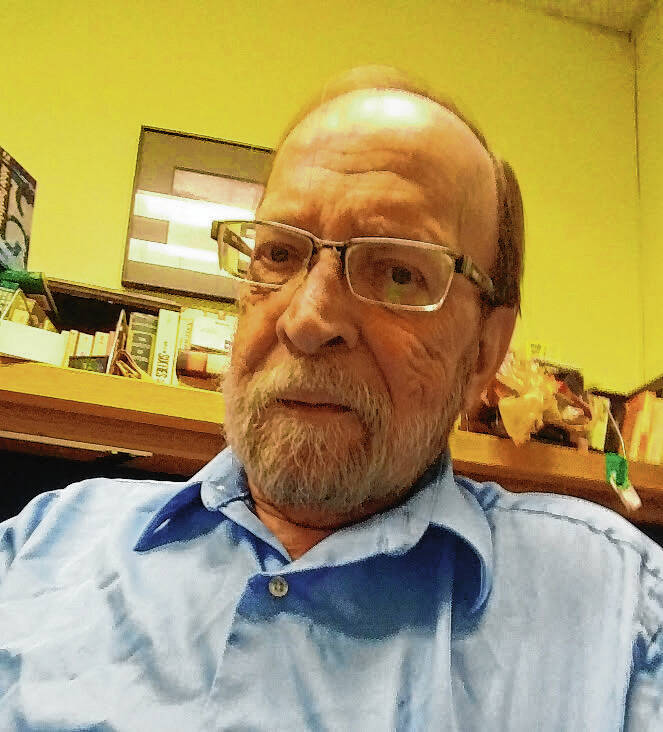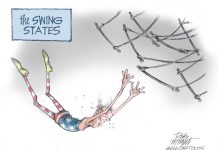The Indianapolis Business Journal has named its “Indiana 250”, a list of “the state’s most influential and impactful business and community leaders.”
Alas, I did not make the list, despite having spent a long career penning insightful, eloquent editorials and columns designed to convince people of something or persuade them to do something (little smug grammatical pedantry thrown in for free). How can someone ready to pounce unmercifully on every minor public official’s misstep not be influential?
Takes me back to high school.
Remember the cool kids’ table in the cafeteria? All those in the lower tiers of peer approval wanted to sit there, though none would have dared to do so without an invitation.
Exactly why everyone wanted to sit there, and more important, be seen there, was a mystery worthy of an Abbott and Costello routine.
“I really want to sit at the cool kids’ table.”
Why?
“Because that’s where the cool kids sit.”
But why do they sit there?
“Because they’re the cool kids.”
But why are they cool?
“Well, just look where they’re sitting.”
A few years later, in a college sociology class, I read historian and social theorist Daniel Boorstin’s classic “The Image: A Guide to Pseudo-events in America,” and it became much clearer to me.
In times past, he noted, people became famous for some achievement, skill or talent. They wrote a book or explored the jungle or committed murder. But the revolution in communications severed greatness from fame, which degenerated into mere celebrity. Boorstin described a celebrity as “a person who is known for his well-knownness.”
That phrase gradually morphed into “famous for being famous” and an apt description of the celebrity-worshiping culture of the next 50 years was born.
Since Boorstin’s 1961 book, that culture has accelerated and absorbed everything in its path.
Somehow, I think the folks at the Indiana Business Journal have something a little loftier in mind. They are spotlighting those who used to be called “movers and shakers,” people who get things done in the state, irrespective of whether Hoosiers might actually want them done.
There is the entrepreneur in Fort Wayne who is creating a little music and real estate empire. There is the attorney who has been a driving force in the pro-life movement that recently energized the General Assembly. There is the former congressman who still patrols the political corridors. There are luminaries from business and industry, charities, the health and education sectors, law, finance and “community leadership.”
Notably absent are “elected officials,” who, we are told “were not eligible.”
Wonder why that is.
Could it be because they are not the influencers? They are, instead, the influenced.
One of the 250 most influential is the CEO of Eli Lilly and Co., which has gotten some adverse publicity in the aftermath of the restrictive abortion provisions recently passed by the General Assembly.
The company, one of the state’s largest employers, says the near-total ban on abortion will “hinder” its ability to “attract diverse scientific, engineering and business talent” and warns that it may now have to “emphasize expansion plans outside Indiana.”
That after-the-fact posturing is all very well, critics say, but why didn’t Eli Lilly make its objections known before the vote was taken, when it might have made a difference? As a matter of fact, if its position was that strongly felt, why did it give millions of dollars to Republican-sponsored groups who fought so hard for the abortion legislation?
Of course, the company also gave hefty amounts to Democratic groups. You have to keep your options open if you want to have the rules and regulations approved that favor your position. So, a prime rule of being an influencer is that to use your influence is to lose it. You may be proud to be known as an influencer, but be very careful when you actually try to influence.
Abbott and Costello would understand, and the kids at the cool table nod their heads in approval.
Leo Morris, columnist for Indiana Policy Review, is winner of the Hoosier Press Association’s award for best editorial writer. Morris, as opinion editor of the Fort Wayne News-Sentinel, was named a finalist in editorial writing by the Pulitzer Prize committee. Contact him at [email protected]. Send comments to [email protected].





